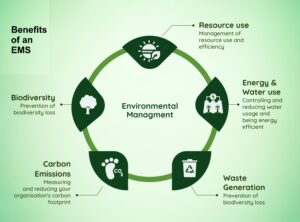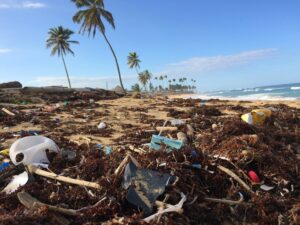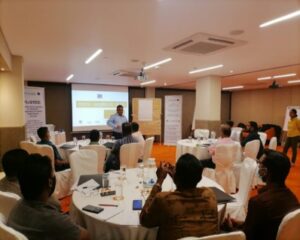
Sri Lanka is making significant efforts to protect its biodiversity and align with global environmental initiatives. One of the key steps the country has taken is the formation of the National Biosecurity Team to implement the goals set by the Convention on Biological Diversity (CBD), which Sri Lanka ratified in 1994. These efforts aim to develop sustainable practices across various sectors, with a focus on fostering harmony between people and nature by 2050. However, the government alone cannot achieve these ambitious goals. The involvement of the private sector is crucial for making meaningful progress.
The National Biodiversity Strategic and Action Plan (NBSAP) outlines 20 strategic targets aimed at conserving biodiversity and promoting sustainable development. These targets address a wide range of areas, from raising public awareness and integrating biodiversity into national economic policies, to protecting ecosystems and promoting sustainable resource management. Some targets specifically call on the private sector to engage in biodiversity conservation, disclosing their environmental impacts and adopting sustainable practices.
New Approaches to Landscape Management
Despite having strong frameworks in place, the government faces challenges in implementing many of these targets. For example, there are six comprehensive plans for nature-based tourism developed by the World Bank’s Ecosystem Conservation and Management Project (ESCAMP), but they remain inactive due to funding challenges. These plans, if activated, could bring in local and international visitors, boosting the economy and fostering sustainable tourism. The private sector’s involvement in such initiatives could unlock tremendous potential and help bring these dormant projects to life.
Another area where private sector involvement is critical is in landscape management. There are two well-developed plans for biodiversity-rich areas prepared by ESCAMP. One such plan is the Sinharaja Forest Range Landscape Management Plan. The other such comprehensive plan is the Hurulu-Kaudulla-Kanthale Landscape Management Plan. Businesses have an excellent opportunity to invest in sustainable practices within these landscapes, benefiting from their natural beauty and contributing to long-term conservation efforts. By working together with the government and other stakeholders, the private sector can help realize the full potential of these regions and play a key role in preserving Sri Lanka’s natural heritage.
Funding Biodiversity Management
The biggest obstacle to implementing many of these sustainable initiatives is the lack of financial resources. Here, the private sector can step in by co-financing projects that need funding to get started. Whether through direct investments, partnerships, or other funding arrangements, businesses can help support sustainable tourism, conservation, and biodiversity management projects.
The government is eager to collaborate with the private sector and is open to showcasing potential projects where partnerships can lead to meaningful progress. Through these collaborations, both the private sector and the government can achieve greater success in driving sustainable initiatives that benefit the environment and the economy.
Unlocking Potential through Collaboration
The active participation of the private sector is essential to achieving Sri Lanka’s biodiversity and sustainability goals. By fostering collaborative partnerships with the government and other stakeholders, businesses can help overcome financial and operational challenges while making a significant positive impact on both the economy and the environment.
Together, we can leverage resources, share knowledge, and drive innovative solutions to create a sustainable future that not only benefits nature but also enhances economic growth and community resilience. Engaging in these partnerships will not only pave the way for sustainable development but also position the private sector as a leader in environmental stewardship. Biodiversity Sri Lanka is committed to make this a reality.
Derived from the discussions that took place on this subject at the 2024 Annual Technical Sessions of Biodiversity Sri Lanka.










